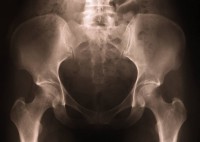
When you’re coping with cancer, making sure you get a good night’s sleep can be challenging. Between worrying about your condition and dealing with symptoms, you can end up having trouble falling asleep or difficulty staying asleep throughout the night.
Benefits of Improved Sleep
Taking steps to ensure that you’re able to get restful sleep is an important part of living with cancer. A good night’s sleep gives you more energy and allows your body time to rest and recover from the day. Not getting enough sleep affects your immune system, making it harder for your body to fight off infection.
Tips for Getting Better Sleep
The key to improving your sleep quality while you’re coping with cancer is to make sure you’re feeling relaxed at bedtime. The following tips can help ensure that you’re in a better frame of mind for a good night’s rest:
- Limit naps. Only allow yourself to take one nap of 45 minutes or less during the day. Just make sure you don’t nap after 4pm, or you’ll have trouble falling asleep later in the evening.
- Unwind before bedtime. Take at least one hour to relax before going to bed. Spend this time reading, writing in a journal or listening to music instead of watching TV or using a computer or tablet.
- Stay positive. Repeat a helpful, upbeat phrase to yourself before going to bed. Avoid researching your condition or discussing it between dinner and bedtime, which will help you feel less stressed.
If you’d like information on healthy ways to treat cancer, please contact Issels®. We offer integrative immuno-oncology programs and personalized non-toxic therapies to help you get better and feel stronger.





